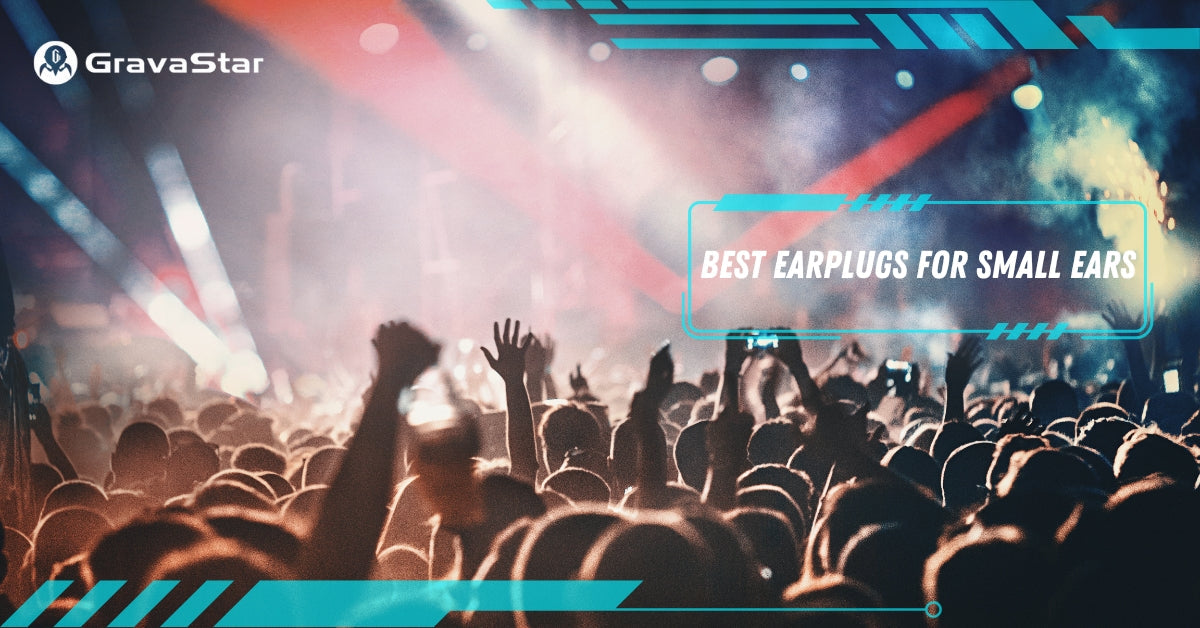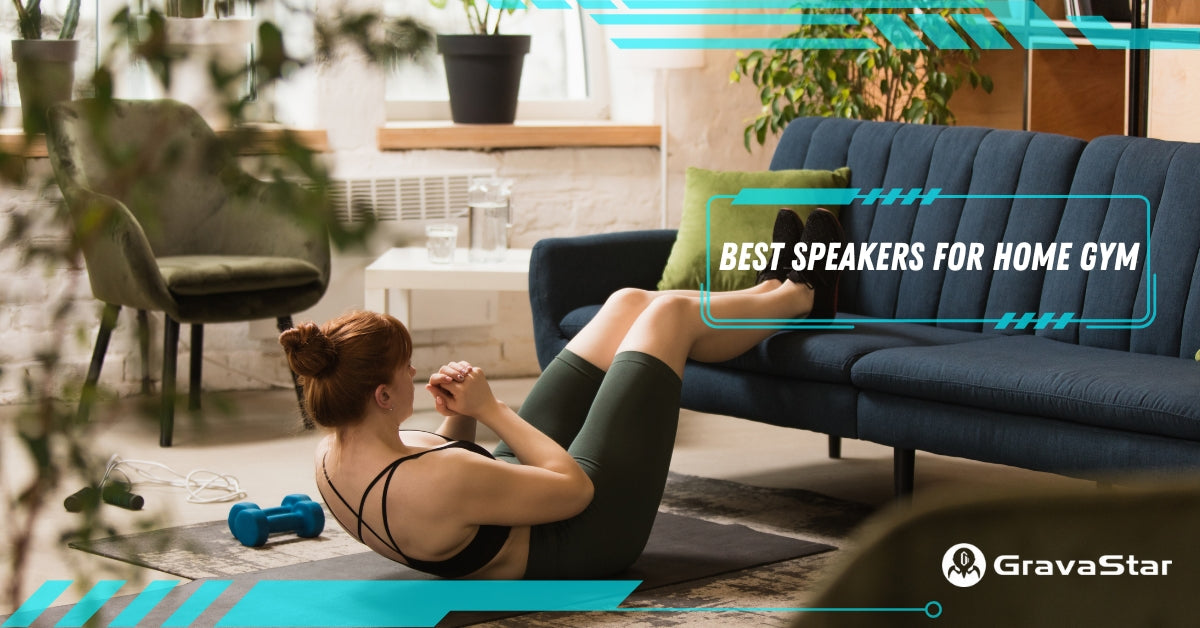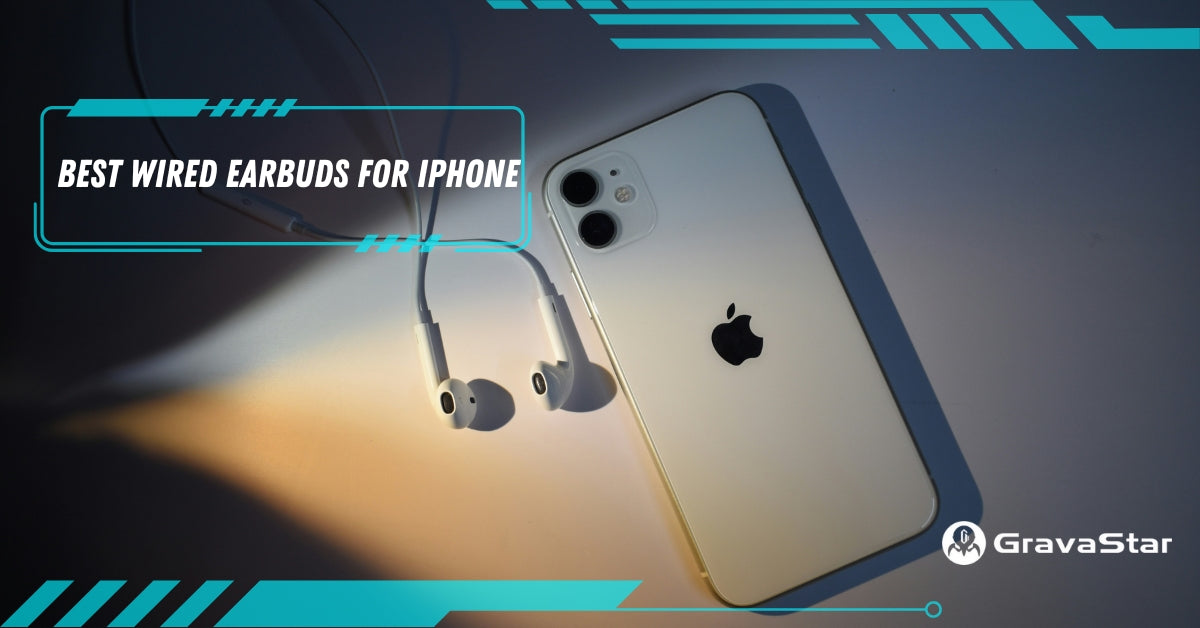Recent surveys show that about 25% of adults experience discomfort from standard earplugs due to small ear canals, with women 3x more likely than men to seek petite-fit options. Among frequent flyers with small ears, 41% use specialized earplugs to ease pressure during flights.
It's obvious that the need for better-fitting earplugs is both common and growing. Therefore, choosing suitable earplugs is crucial for personal comfort and effective sound blocking, especially if you have smaller ear canals.
Here at GravaStar, we often get asked about the best solutions for smaller ears or ear canals, so we wanted to explore the topic in depth.
Selecting the right earplugs isn't just about reducing noise–it's also about ensuring comfort, avoiding ear pain, and achieving a proper seal to block unwanted sound. Poorly fitting earplugs can cause discomfort, be ineffective at noise blocking or noise cancelling, and even result in health issues.
Our team went deep into the world of earplugs, comparing various brands and types to bring you reliable recommendations. Through our research and testing, we've identified the Mack Slim Fit Soft Foam Earplugs as the top choice for small ears.
How We Picked
When selecting earplugs for small ears, several key factors come into play. Understanding these can help you make an informed decision that meets your specific needs.
Size and Comfort
The primary concern if you have small ears is the physical size of the earplug. Standard earplugs can be too large, causing discomfort or failing to seal properly. Options specifically designed as “slim” or “small” fit are meant for smaller ear canals.
Material
Earplugs come in various materials, each with its advantages and disadvantages. Foam earplugs are popular for their ability to expand and conform to the shape of the ear canal. While silicone options offer a moldable, reusable alternative that can be more gentle on the skin.
Noise Reduction Rating (NRR)
The effectiveness of earplugs is measured by their Noise Reduction Rating (NRR). For environments with substantial noise, a higher NRR is essential. However, for everyday use, like sleeping in a city apartment, a more moderate NRR should suffice.
Additional Features
Other considerations include whether the earplugs are reusable, the presence of a cord so they don't get lost as easily, and if they come with a carrying case. These features can enhance usability, hygiene, and add more value to the product.
Best Overall: Mack's Slim Fit Soft Foam Earplugs
- Comfort: Exceptionally high
- NRR: 31 dB
- Material: Soft Foam
- Reusability: Disposable
Mack's Slim Fit Soft Foam Earplugs stand out as the best overall choice for anyone with small ears. These are designed specifically for smaller ear canals and offer a comfortable fit without the bulkiness of standard earplugs. They get the job done with a small profile.
In our opinion, the soft foam material provides excellent noise reduction while maintaining comfort during extended use. These can easily be worn all day or night without your ears getting too sore or uncomfortable.
The 31 dB NRR does a solid job at blocking out anything from snoring to construction noises to loud music. We also used these while handling some DIY tasks with power tools around the house, and they did a great job at keeping the noise down.
One downside is that these are disposable, so they might not be the most environmentally friendly option. Those considerations aside, the effectiveness and comfort of these earplugs make them a top pick if you struggle with standard-sized options.
Best for Musicians: Vibes High Fidelity Ear Plugs
- Comfort: High
- NRR: 22 dB
- Material: Silicone
- Reusability: Reusable
Vibes High Fidelity Ear Plugs are an excellent choice for anyone needing to maintain sound clarity, such as musicians and concert-goers. These noise cancelling earplugs reduce noise levels without muffling the sound, preserving the quality of music and speech very effectively.
Another thing we really like about these earplugs is their reusable silicone design, which is both eco-friendly and economical. They are more expensive than the average foam model, but their value is much higher with the reusability and practicality they offer.
These plugs are also very small and have a nearly invisible profile when placed in your ears. That makes them great for wearing out in public or at concerts when you might not want everyone to know you are wearing them.
The lower NRR here might not be suitable for extremely loud environments, which is why these are geared toward musical purposes. However, for controlled settings where clarity is key, these are ideal and help you still rock out without missing out.
Best for Sleeping: Mack's Pillow Soft Silicone Earplugs
- Comfort: Very high
- NRR: 22 dB
- Material: Moldable silicone
- Reusability: Reusable
Mack's Pillow Soft Silicone Earplugs are the go-to option for uninterrupted sleep. Their moldable silicone material allows for a custom fit, which is ideal for small ears. This helps to get an effective seal without penetrating too deeply into the ear canal.
One of the big reasons we like this model for sleeping is that they are soft and gentle, so they won't cause discomfort–even when you're lying on your side. These were some of the most comfortable earplugs we tested for long-term use, and their small size adds to that.
And while these are great for getting some solid sleep, they can be used effectively in all sorts of other situations. The moldable design helps them stay in place while swimming, working, running, or going to concerts. They're even lab-tested to prevent ear pressure when flying!
A downside with these is that they are better suited for moderate noise levels and might not be the best choice for blocking out louder disturbances. If you need a high NRR, these don't quite reach high-end standards for keeping your ears safe from high decibel levels.
Best for Very Small Ears: Hearos Nanos Foam Ear Plugs
- Comfort: High
- NRR: 28 db
- Material: Foam
- Reusability: Disposable
Hearos Nanos Foam Ear Plugs are another excellent choice for small ear canals. They are designed to be ultra-soft and small-sized, providing an effective seal and high levels of comfort. These are small but sturdy and will stay in place during all sorts of situations.
We really like how versatile these options are for being extremely small in profile. If you have smaller ears and need plugs that cover a lot of ground, these will have what you're looking for. They are also very comfortable and mold into place nicely.
The Nanos' roll-down design stands out from a design perspective for small ears. You just need to roll the plug between your fingers to get it into a small, thin shape. Then, you can place it in your ears, where it'll expand for a tight seal.
Despite all these benefits, the disposable nature of these small earplugs means you might need to purchase them frequently if you need to use them often. That's a downside regarding environmental concerns and value, as it increases price and waste.
Budget Pick: Flents Foam Earplugs
- Comfort: Good
- NRR: 31 dB
- Material: Foam
- Reusability: Disposable
Flents Foam Earplugs offer a great balance between affordability and effectiveness in a package that works well for smaller ears. You can stock up on these and have a near-endless supply without breaking the bank, which is always a plus.
We like that despite having a lower price, these have a competitive NRR of 31 dB. This makes them suitable for use in loud and noisy environments where you need protection from whatever sound source might be coming your way.
They also have a comfortable fit that forms well into a small ear canal. They don't form as tight of a fit as some of the other options mentioned above, but they still do a good job of blocking out sound despite this downside.
We found that the biggest downside of going for a budget pick is you sacrifice a bit of comfort. These aren't a great option if you need to wear earplugs for extended periods or want to sleep in them. They can cause some minor discomfort after hours of use.
The Competition
All of the products listed above are our top picks, but there are other earplugs that might be suited to specific needs or preferences you have.
1. Although not specifically designed for small ears, the Eargasm High Fidelity Earplugs are notable for their clarity-preserving properties, making them another solid choice for music lovers. Their universal fit may not be as comfortable if you have particularly small ear canals.
2. If you are looking for a completely different material, Ohropax offers wax earplugs that mold into the shape of your ear. While they provide excellent noise isolation and are reusable to an extent, they may feel different from the foam and silicone options you've used before.
3. The Alpine SleepSoft Earplugs are designed with a special soft filter that is ideal for sleeping. While they provide good noise reduction, they are particularly aimed at reducing ambient sounds rather than completely blocking out noise.
FAQs
When you're looking for a good set of earplugs for small ears, some commonly asked questions can help you think through all the factors to make an informed decision.
How do I know what size earplugs to use?
It can take some trial and error to figure out what size of earplugs to use. If you don't know what size ears you have, you can experiment with replaceable earbuds pieces to see if you fall into the small, medium, or large category.
Which earplugs block the most noise?
To figure out which earplug options block the most noise, look for the Noise Reduction Rating or NRR. Nearly all earplugs should list this rating on their packaging, giving you an idea of how effective they are at blocking out noise. Higher NRRs offer more noise blocking.
How often should I replace my earplugs?
For disposable earplugs, replace them after each use to maintain hygiene and effectiveness. Reusable earplugs should be cleaned according to the manufacturer's instructions and replaced when they start to lose their elasticity or shape.
Can earplugs be worn while sleeping?
Yes, earplugs are safe to wear while sleeping especially designs intended for comfort over long periods. Ensure that any option you use for sleeping fits well to avoid having them fall out or cause discomfort during the night.
Final Thoughts
Selecting the right earplugs for small ears requires considering several factors like comfort, material, noise reduction, and your personal needs. This review aims to guide you toward making an informed decision that keeps your ears safe from loud noise while being comfortable.
Remember, the right earplug can make a significant difference in your quality of life, whether you're looking to improve sleep, concentrate better, or protect your hearing in noisy environments. Take the time to make a selection that works best for you.
Disclosure: As an Amazon Associate, we earn from qualifying purchases.





Leave a comment
This site is protected by hCaptcha and the hCaptcha Privacy Policy and Terms of Service apply.